What Makes Iran an Ideal Choice for Gastric Bypass Surgery?
It’s important to know that this country is a hub for cosmetic surgeries and is the most affordable place for undergoing gastric bypass operations. Both the procedures, Roux-en-Y slimming surgery, and mini-gastric bypass are done in Iran at modern and specialized clinics in Tehran, Isfahan, Shiraz, Mashhad, Tabriz, and Kish Island.
Plus, Iranian surgeons and experts are highly recommended for performing such operations, especially slimming surgery. Most of these surgeons completed and graduated from top universities in the world and also completed fellowships and specialized courses in plastic surgery in top medical institutes and advanced clinics.
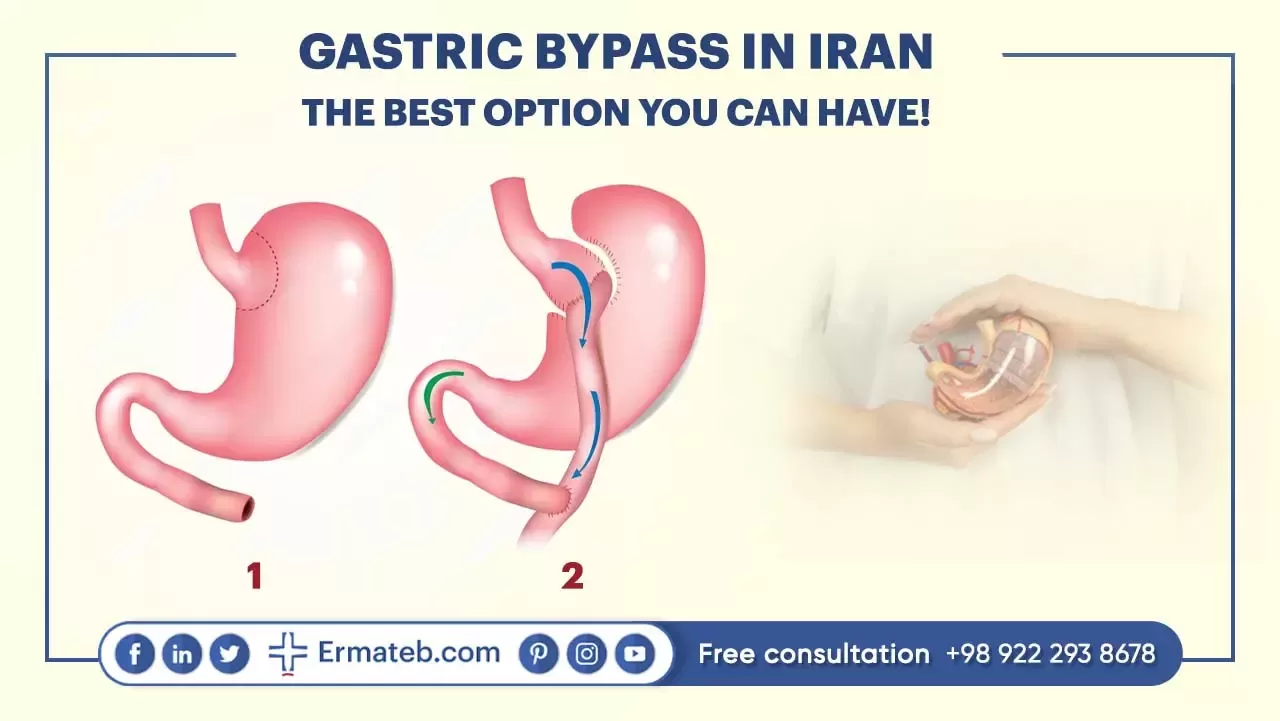
Another important point we must mention is that Iranian plastic surgeries are members of European and American societies of plastic surgery and other specialties. It’s important to note that the majority of Iranian plastic surgeons are members of American and European societies of plastic surgery or other specialties. They can help you know the whole process and determine the method which best suits your goals and needs. Therefore, you can ensure that your desired results will be achieved.
Selecting the type of surgery is different for each person and has various factors such as endoscopy, tests, and family history. Therefore, one type of surgery may be better for each patient. It can be distinguished with the treating physician and after examining the person’s condition.
Gastric Bypass Cost in Iran
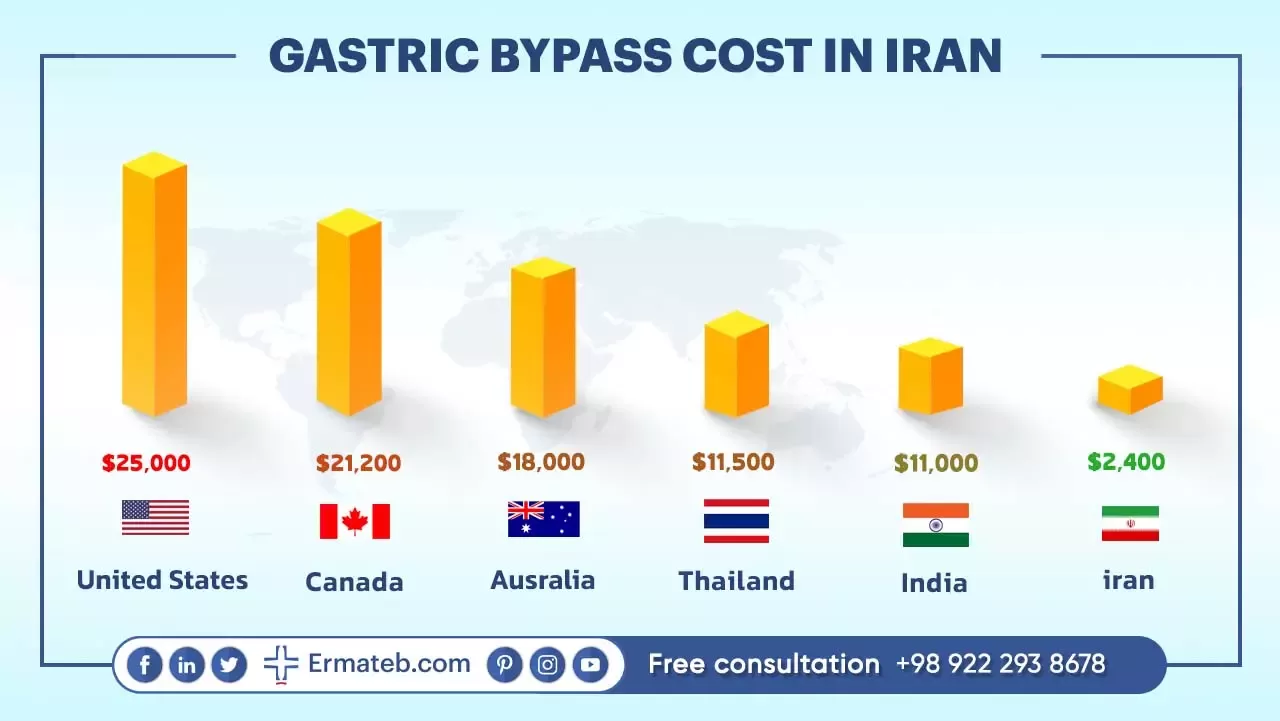
The price of a gastric bypass in Iran depends on some factors such as the surgeon, the clinic, the bypassing technique, and most importantly, the country you want to have your slimming surgery. The price of slimming surgery in Iran is more affordable and lower compared to other countries. The whole procedure may cost you about $2,400 in here, while the same procedure in other countries such as the United States costs $25,000, $21,200 in Canada, 11,000 in India, $18,000 in Australia, and $11,500 in Thailand.
The price of a mini gastric bypass operation is almost $2,400 on average in Iran. While it costs around $16,000 and $24,000 in the United States. In Mexico, it ranges between $8,000 to $10,000, in Canada, the average price of a mini bariatric surgery is $22,000; in Australia, it is $27,000; and in the United Kingdom, it is around £9,000 and £16,000. For more information about the exact price contact us now.
The good point is that this country provides lower prices for everything related to your operation in this country, including cosmetic slimming surgery, accommodation, transportation, and food costs.
In terms of both cosmetic and medical surgeries, money is the most important factor. These days, Iran is a hub for patients who want to have cosmetic and medical surgeries because of reasonable and unbelievably low prices, the best doctors and surgeons, modern and advanced clinics, and other high-quality services you will get during your trip.
If you decide to have this cosmetic surgery, you can get in touch with us via an online form on the website, or you can contact us via WhatsApp. After that, Ermateb’s coordinator guides you through the next process of your medical operation. Our consultant may ask for your medical information and records may be required, and now you can plan your trip to this country. Alongside your treatment, you can enjoy your travel by visiting the cultural and historical attractions of this country. We will help you to get the best services you can have during your travel to this country.
What is Gastric Bypass Surgery?
Excessive obesity poses significant challenges, impacting both physical health and emotional well-being. Individuals grappling with obesity often face a myriad of health issues, ranging from heart problems to diabetes, high blood pressure, and more, affecting their quality of life and confidence. Gastric bypass surgery emerges as a beacon of hope, offering a transformative solution to combat obesity and its associated health risks. By reducing stomach size and altering the digestive process, gastric bypass surgery enables individuals to achieve substantial weight loss and regain control over their health.
Gastric bypass surgery, a form of bariatric or weight-loss surgery, involves surgically reducing the stomach’s size and rerouting part of the small intestine. This procedure effectively curbs food intake and limits nutrient absorption, facilitating significant weight loss. Compared to other bariatric surgeries like gastric sleeve, gastric bypass surgery boasts higher success rates, with a notable percentage of patients shedding excess weight within a relatively short timeframe post-surgery. However, it’s essential to recognize that all surgical interventions carry inherent risks and potential side effects, underscoring the importance of ongoing dietary and lifestyle modifications for sustained benefits.
Candidates for Gastric Bypass in Iran
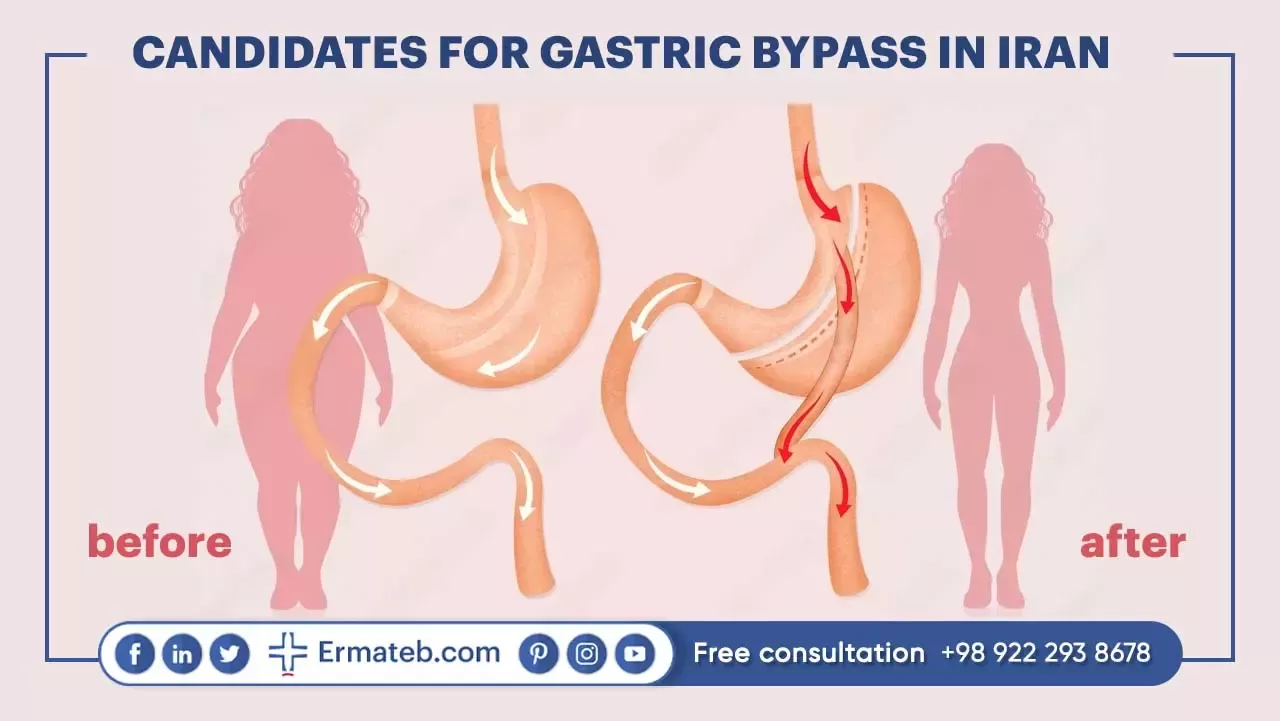 Deciding whether gastric bypass surgery is appropriate involves assessing several factors to ensure optimal outcomes for patients:
Deciding whether gastric bypass surgery is appropriate involves assessing several factors to ensure optimal outcomes for patients:
BMI Criteria and Specific Medical Conditions:
- BMI above 40 (Grade 3 obesity) or significant overweight for an extended period.
- BMI above 30 with obesity-related comorbidities such as high blood pressure, diabetes, or sleep apnea.
- Efforts to lose weight through conventional methods unsuccessful.
Preference for Permanent Solution:
- Individuals seeking a lasting weight loss solution.
- Previous challenged with restrictive stomach techniques like gastric banding.
- Health Problems Associated with Obesity:
- Gastric acid reflux, heart disease, hypertension, high cholesterol.
- Obstructive sleep apnea, type 2 diabetes, stroke, infertility.
Rigorous Evaluation Process:
- Thorough assessments to ensure alignment with health goals.
- Compliance with specific medical guidelines.
- Commitment to lifestyle changes for long-term success.
General Information
In this chart, we provided you with all the information you need for having a gastric bypass in Iran.
| 2 – 3 hours | Duration |
| General | Anesthesia |
| From 2400$ | Cost |
| Laparoscopic Surgery | Method |
| 1 – 3 Months | Recovery |
| 1 Night | Clinic Stay |
| 9 Days | Total Stay |
| 14 – 21 Days | Back to Work |
Advanced Methods Used in Gastric Bypass Surgery
Gastric bypass surgery in Iran offers several methods, each tailored to individual needs and medical conditions:
1. Proximal and Distal Roux-en-Y Gastric Bypass:
Proximal and Distal Roux-en-Y Gastric Bypass (RYGB) involve reconfiguring the small intestine to control nutrient absorption and promote weight loss. In the proximal version, the Y-intersection is near the proximal part of the small intestine, while in the distal version, it is closer to the lower end, reducing nutrient absorption, especially fats, starches, minerals, and fat-soluble vitamins.
2. Mini Gastric Bypass (MGB):
This method creates a narrow tube from the stomach’s right side and loops a portion of the small intestine for attachment, offering lower risks of bile reflux compared to traditional methods.
3. Endoscopic Duodenal-Jejunal Bypass:
This innovative option prevents food entry into specific parts of the small intestine, enhancing weight loss and glucose control.
4. Robotic Surgery (Robot-Assisted Minimally Invasive Surgery):
Conducted through small incisions with robotic assistance, this approach allows for precise movements and quicker recovery times.
5. Open Surgery:
This traditional method involves a large incision in the abdomen, providing direct visualization but may result in post-operative pain.
6. Laparoscopic Surgery (Minimally Invasive Surgery):
Similar to robotic techniques but without robotic assistance, this approach offers minimally invasive alternatives for obese patients, with a camera providing a 2D view of the inside of the patient.
Pre-Operative Steps for Gastric Bypass in Iran
Before undergoing gastric bypass surgery in Iran, thorough pre-operative considerations are vital to ensure optimal outcomes:
1. Consultation with a Board-Certified Plastic Surgeon:
- Discuss goals, expectations, and medical history.
- Review previous surgeries and overall health.
- Conduct a thorough physical examination.
- Order necessary lab tests and provide nutritional counseling.
2. Medication:
- Discontinue smoking to aid in recovery.
- Cease blood thinners to minimize bleeding risks.
- Adjust insulin dosage for diabetic patients.
- Stop hormone medications and supplements.
- Avoid herbal supplements and anti-inflammatory drugs.
3. Dietary Modifications:
- Transition to a dilute fluid diet the day before surgery.
- Limit or eliminate caffeinated beverages two weeks before surgery.
- Start daily multivitamins and iron supplements three weeks before surgery.
- Ensure permitted fluids do not impact blood sugar levels in diabetic patients.
4. Physical Activity and Lifestyle:
- Establish a physical activity routine leading up to surgery.
- Limit or cease smoking entirely at least 12 weeks before surgery.
By following these pre-operative guidelines meticulously, you can enhance your readiness for gastric bypass surgery and improve the likelihood of achieving favorable outcomes.
What Happens During Gastric Bypass Procedure in Iran
Gastric Bypass in Iran, typically conducted laparoscopically under general anesthesia, involves intricate steps aimed at reducing stomach capacity and altering the digestive process to promote weight loss. These stages are mentioned as below:
Stage 1: Gastric bypass surgery in Iran begins with the patient under general anesthesia in a hospital setting. Using laparoscopic techniques, the surgeon makes small incisions on the abdomen. The first stage involves dividing the stomach into two parts: a small upper pouch and a larger lower portion. This smaller pouch restricts food intake, allowing only about 28 grams of food to be stored, leading to a feeling of fullness despite consuming less.
Stage 2: Following the creation of the upper stomach pouch, the surgeon reroutes a section of the small intestine to this pouch. This bypasses part of the digestive system, reducing calorie and nutrient absorption. The food now enters the small stomach pouch and then travels into the second part of the small intestine. This two-stage process helps in weight loss by restricting stomach size and altering nutrient absorption.
The procedure, which typically lasts 2 to 4 hours, utilizes advanced techniques like laparoscopy and robotic surgery to ensure minimal invasiveness and faster recovery. Iranian surgeons perform gastric bypass surgery with precision and expertise, aiming for effective weight loss outcomes while prioritizing patient safety and comfort.
Post-Operative Care and Recovery Process After Gastric Bypass in Iran
Recovery after gastric bypass surgery in Iran is a journey that demands dedication and adherence to post-operative care guidelines. Typically, patients spend 1 to 4 days in the hospital following the procedure, where pain management and initial recovery support are provided. During this time, patients are encouraged to take short walks to promote circulation and aid in healing.
Upon discharge, patients enter a crucial phase of post-operative care, guided by a set of comprehensive guidelines aimed at facilitating a smooth recovery process. These guidelines encompass various aspects, including dietary progression, hydration, physical activity, medication, and follow-up appointments.
Key Elements of Post-Operative Care Include:
- Dietary Progression: Patients begin with a restricted diet, gradually transitioning from liquids to soft foods over the ensuing weeks. Strict adherence to prescribed dietary guidelines is essential to support healing and prevent complications.
- Hydration: While hydration is vital for recovery, patients are advised to consume water in small sips to prevent discomfort and promote optimal digestion. Adequate hydration is paramount for overall well-being during the recovery phase.
- Physical Activity: Early mobilization through gentle walking is encouraged to enhance circulation and aid in recovery. However, patients should refrain from engaging in strenuous activities for several weeks to avoid undue strain on the healing body.
- Medication and Supplements: Compliance with prescribed medications and supplements, including multivitamins and minerals, such as iron, vitamin B-12, and calcium, is crucial to address nutritional needs and support overall health during recovery. Also, you can take the pills your surgeon prescribed to relieve pain.
- Follow-Up Appointments: Regular follow-up appointments with healthcare providers are scheduled to monitor progress, address concerns, and ensure favorable recovery outcomes.
During the early stages of recovery, patients may encounter challenges such as adapting to dietary changes, managing physical symptoms, and coping with emotional fluctuations. However, with open communication and support from healthcare professionals, these challenges can be effectively addressed, facilitating a smoother transition to a healthier lifestyle.
Looking ahead, patients can anticipate significant weight loss in the initial months following surgery, with gradual stabilization over time. Long-term success hinges on sustained lifestyle modifications, including dietary adjustments and regular physical activity, to maintain weight loss and achieve lasting health benefits.
Usually, patients can go back to work in two or three weeks. In the first few months, you should have medical checkups regularly to figure out your overall situation. Your skin may become dry, or your mood may change, but you don’t have to worry about these changes because they are so normal. Your body is reacting to fast weight loss in the first 4 to 7 months after the operation.
Navigating post-operative recovery after gastric bypass surgery in Iran requires patience, resilience, and a commitment to embracing a new lease on life. With proper care, support, and adherence to guidelines, patients can embark on a transformative journey towards improved health and well-being.
Risks and Complications of Gastric Bypass
Gastric bypass surgery, while offering effective weight loss solutions, entails potential risks and complications that patients should be aware of before undergoing the procedure. The common drawbacks of weight loss operations are the complications and side effects that may occur after the surgery, although they occur in less than 6% of cases. Here’s an overview of the potential risks associated with gastric bypass:
Short-Term Risks:
- Excessive bleeding
- Infection
- Adverse reactions to anesthesia
- Blood clots
- Lung and respiratory problems
- Leakage in the gastrointestinal tract
Long-Term Risks:
- Ileus
- Dumping syndrome, leading to diarrhea, nausea, or vomiting
- Gallstones
- Intestinal hernia
- Low blood sugar (hypoglycemia)
- Malnutrition
- Perforation of the stomach
- Wounds
- Vomiting
Furthermore, gastric bypass recovery may extend over two years or more, necessitating regular check-ups and medical care. Lifestyle changes and permanent dietary modifications are imperative post-surgery, as the body absorbs less food, potentially leading to malnutrition.
Complications such as intestinal obstruction, vitamin deficiencies, constipation, gastric reflux, and anesthesia risks are among the less common but possible drawbacks of gastric bypass. However, these risks can be mitigated with the expertise of experienced surgeons and access to modern medical facilities.
While gastric bypass surgery in Iran offers promising outcomes, it’s crucial to acknowledge and understand the associated risks. Opting for surgery in a reputable medical facility with experienced professionals can significantly reduce the likelihood of complications, ensuring a safer and more successful surgical experience.
Gastric Bypass Outcomes
Gastric bypass surgery offers promising lone-term outcomes for individuals seeking sustainable weight loss and improved quality of life. Within the initial two years post-surgery, patients typically experience significant weight reduction, ranging from two-thirds to one-half of their excess body weight, contingent upon the surgical approach and lifestyle modifications. However, it’s important to note that weight loss tends to plateau over time, emphasizing the need for ongoing commitment to dietary balance and regular exercise to optimize results.
Beyond weight management, gastric bypass surgery yields multifaceted benefits, addressing a spectrum of obesity-related complications. These encompass issues such as gastric acid reflux, heart disease, hypertension, high blood cholesterol, obstructive sleep apnea, type 2 diabetes, stroke, and infertility. By alleviating these health concerns, gastric bypass surgery not only fosters physical well-being but also enhances overall quality of life, empowering individuals to engage in daily activities with renewed vigor and capability.
While gastric bypass surgery in Iran holds immense potential for transformative outcomes, sustained success hinges on post-operative adherence to lifestyle modifications and surgeon recommendations. Failure to implement dietary and behavioral changes may result in inadequate weight loss or weight regain over time. Thus, to avert such setbacks and maximize the benefits of surgery, patients must proactively adopt healthier habits, including mindful eating and regular physical activity.
In essence, gastric bypass surgery represents a pivotal step towards achieving lasting weight loss and resolving obesity-related complications. By embracing a holistic approach to post-operative care and lifestyle management, individuals can unlock the full potential of this surgical intervention, paving the way for improved health, vitality, and well-being in the long term.
Pros and Cons of Gastric Bypass
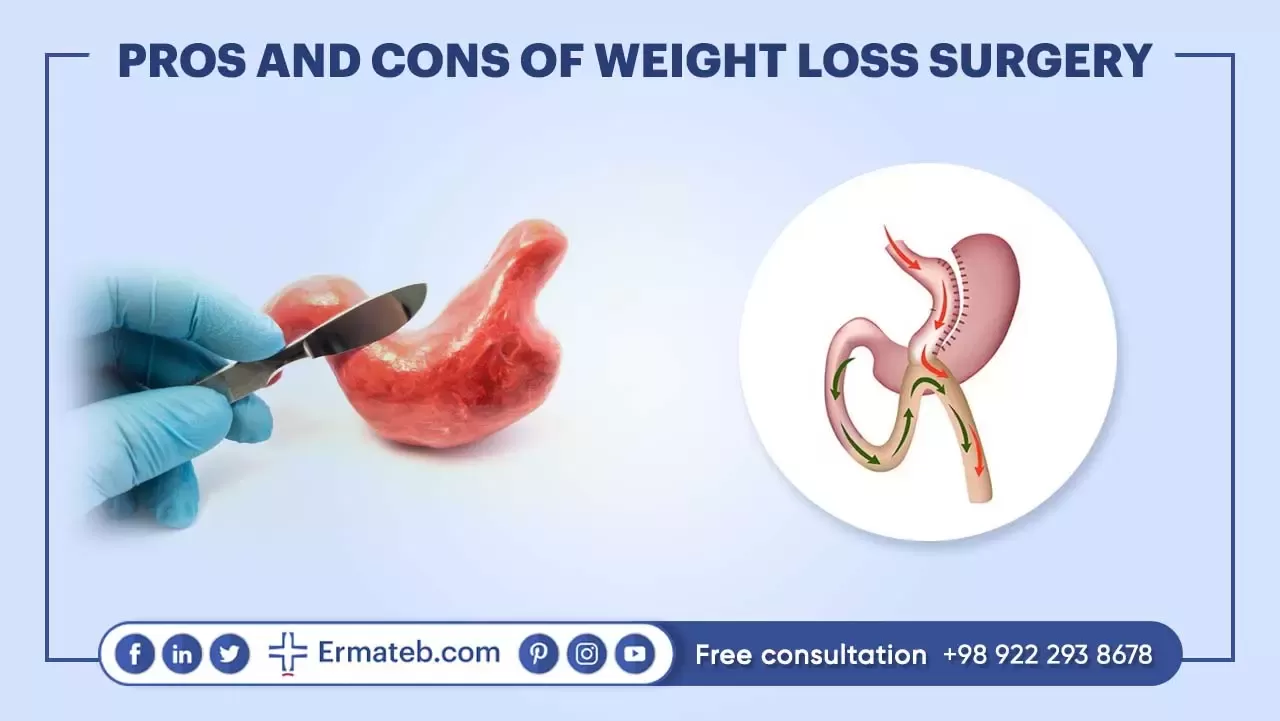 Every variant of weight loss surgery comes with its own set of pros and cons, so it's important for patients considering gastric bypass surgery to weigh both the benefits and potential drawbacks carefully. Here are the primary advantages and disadvantages associated with gastric bypass:
Every variant of weight loss surgery comes with its own set of pros and cons, so it's important for patients considering gastric bypass surgery to weigh both the benefits and potential drawbacks carefully. Here are the primary advantages and disadvantages associated with gastric bypass:
Advantages of Gastric Bypass
While the concept of undergoing Gastric Bypass surgery may appear daunting and difficult, it stands out as a cornerstone in the treatment of severe obesity. Here, we outline the key benefits associated with this transformative procedure:
- Gastric bypass surgery in Iran is highly effective for treating morbid obesity, offering rapid weight loss and substantial health improvements.
- It limits food intake and suppresses appetite hormones, addressing the root cause of obesity and boasting a low rate of weight regain.
- The procedure enhances metabolic function and is particularly effective in managing type 2 diabetes compared to other weight loss interventions.
- Gastric bypass alleviates obesity-related issues such as joint problems, sleep apnea, and cardiovascular concerns, leading to increased self-confidence and a better quality of life.
- It yields greater average weight loss than alternative surgeries and does not require the placement of external devices.
- Recovery from gastric bypass is rapid, often performed laparoscopically to minimize discomfort and scarring.
- Suitable for individuals across a wide age range, from 18 to 70 years old.
Disadvantages of Gastric Bypass
While Gastric Bypass surgery in Iran offers numerous advantages in treating morbid obesity, it's essential to acknowledge the potential drawbacks associated with this procedure. Here are some considerations regarding the disadvantages of gastric bypass:
- Despite being generally low-risk, gastric bypass surgery isn't without its potential complications. Approximately 3 to 5% of individuals may encounter post-operative issues such as bleeding, infection, abscess formation, embolism, intestinal obstruction, or leakage, necessitating further medical intervention.
- Compared to alternative procedures like gastric sleeve, gastric bypass typically entails a longer recovery period. The digestive organs require time to heal and adapt to the altered anatomy, prolonging the recuperation phase.
- Gastric bypass reduces the absorption of essential nutrients and vitamins, necessitating lifelong supplementation to prevent deficiencies. Patients must adhere to a regimen of vitamin and iron supplements to maintain optimal health.
- Following gastric bypass, individuals must adhere to a strict low-sugar and low-starch diet to mitigate the risk of complications such as vomiting and diarrhea. Dietary modifications are crucial for successful long-term outcomes.
Which One Is Better: Gastric Sleeve or Gastric Bypass?
When considering bariatric surgery options like gastric bypass and gastric sleeve, it’s crucial to weigh the benefits and variances between the two procedures. In Iran, for instance, gastric sleeve surgery typically lasts less than an hour, whereas gastric bypass can extend beyond two hours. One notable distinction lies in the post-operative experience: gastric sleeve patients tend to experience reduced hunger due to the removal of the ghrelin-secreting part of the stomach, leading to prolonged feelings of fullness. This also contributes to a slower but steadier weight loss trajectory, minimizing the likelihood of skin issues. Conversely, gastric bypass surgery often leads to more pronounced symptoms such as nausea, vomiting, and heart palpitations.
Moreover, factors such as BMI and overall health condition play pivotal roles in determining the most suitable procedure. While gastric bypass is often recommended for individuals with a BMI over 45, gastric sleeve may be a viable option for those with a BMI of 35 or higher. Additionally, the impact on digestion differs significantly between the two surgeries: gastric bypass alters the digestive process by bypassing a portion of the small intestine, leading to changes in food absorption, whereas gastric sleeve surgery maintains the natural digestive pathway without such alterations. Ultimately, the decision should be made in consultation with medical professionals, taking into account individual health considerations and desired outcomes. For personalized guidance, free consultations are available through medical consultants at Ermateb, ensuring informed decisions regarding bariatric surgery.
Gastric Bypass Diet

Depending on the intensity of the surgery and the patient’s overall situation, the prescribed diet might be different. Using the special diet prescribed by your surgeon helps you eat solid foods without any worries after passing the recovery period. You will pass the levels of recovery depending on how fast your body heals itself.
At the stages of the diet, you will have to:
1. Avoid dehydration, you should drink 64 ounces of fluid a day.
2. Sip liquids not between meals, but with meals. Plus, don’t drink 30 minutes before eating a meal.
3. Drink and eat slowly.
4. Eat drinks and foods that are low in sugar and fat and rich in protein.
5. Avoid caffeine and alcohol because they can cause dehydration.
6. Take mineral supplements and vitamins daily that your medical team prescribed.
7. Eat foods that will puree well, including cottage cheese, cooked cereal, soft scrambled eggs, strained cream soups, soft fruits, cooked vegetables, and lean ground meat, poultry, and fish.
The patient can have three to five small meals a day. After about 8 weeks, they can begin eating solid foods. The amount of food the person can eat in each meal is dependent on the vastness to which your stomach can endure it. To make sure that you are making the best decision, it’s better to consult with your dietitian.
It is good to know that using some specified foods might cause problems. These foods include raw vegetables, bread, red meat, spicy foods, fried foods, carbonated drinks, nuts and seeds, and cooked fibrous vegetables like broccoli, celery, corn, or cabbage.


 Arabic
Arabic
 German
German
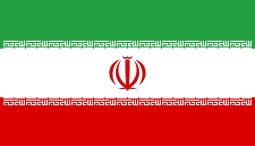 Persian (Farsi)
Persian (Farsi)
 Russian
Russian
 Beauty
Beauty



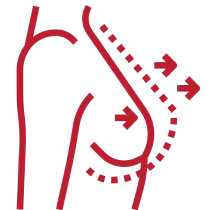

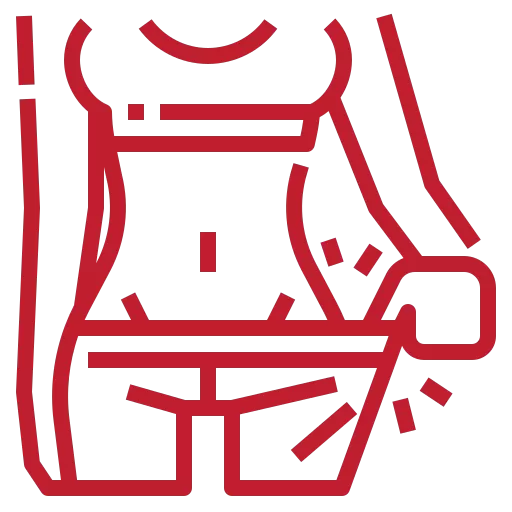
 Medical
Medical





 Hotels
Hotels
 Hospitals
Hospitals








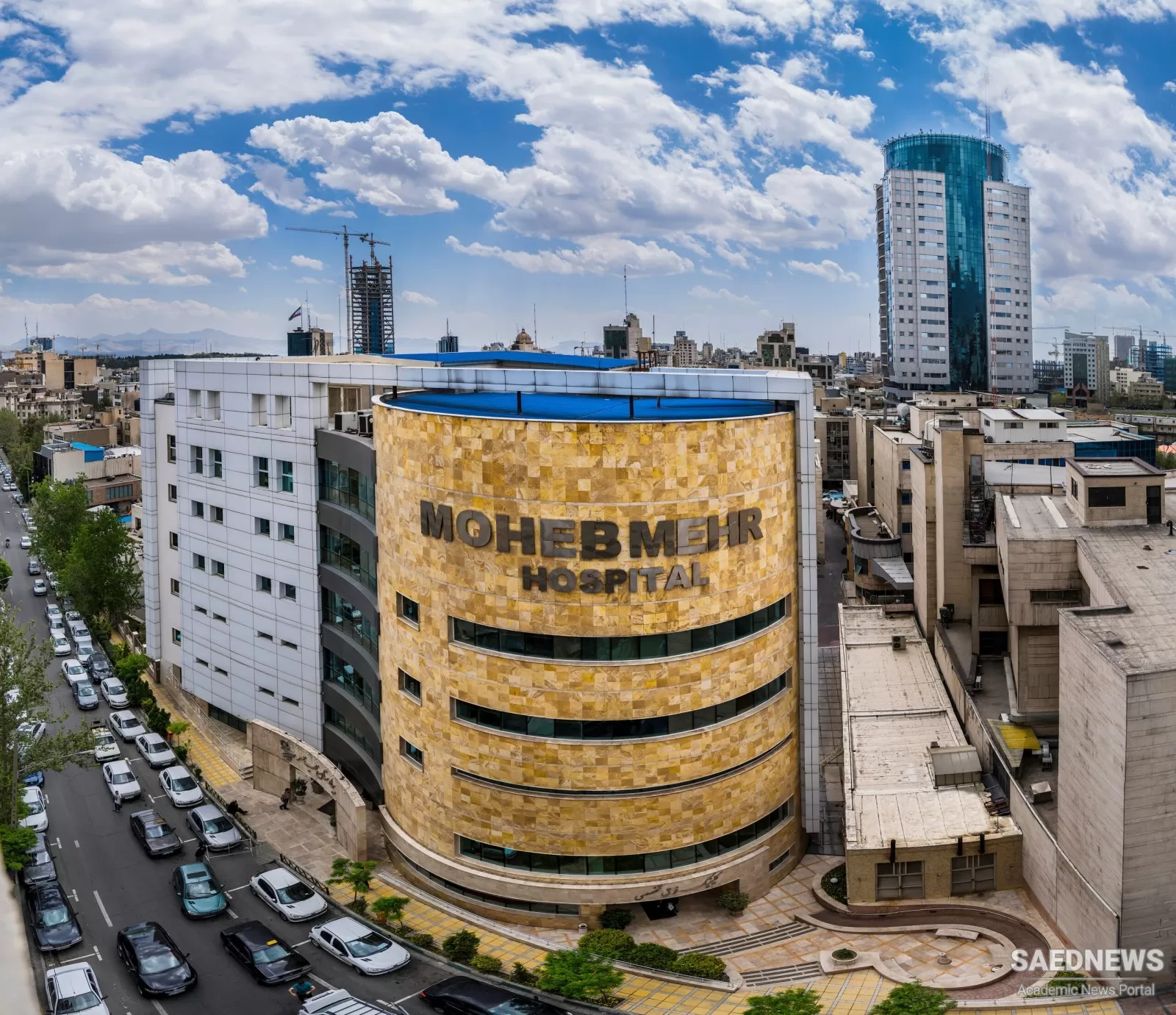
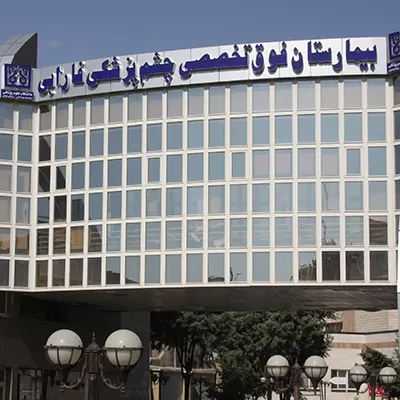
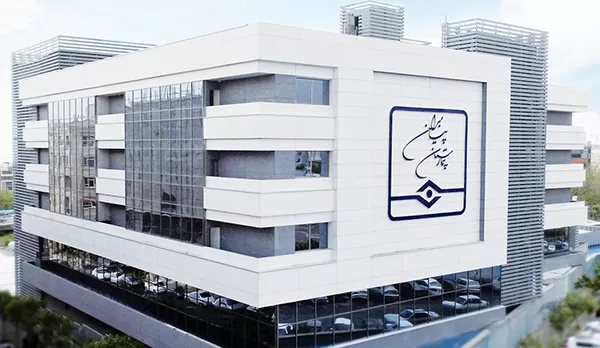
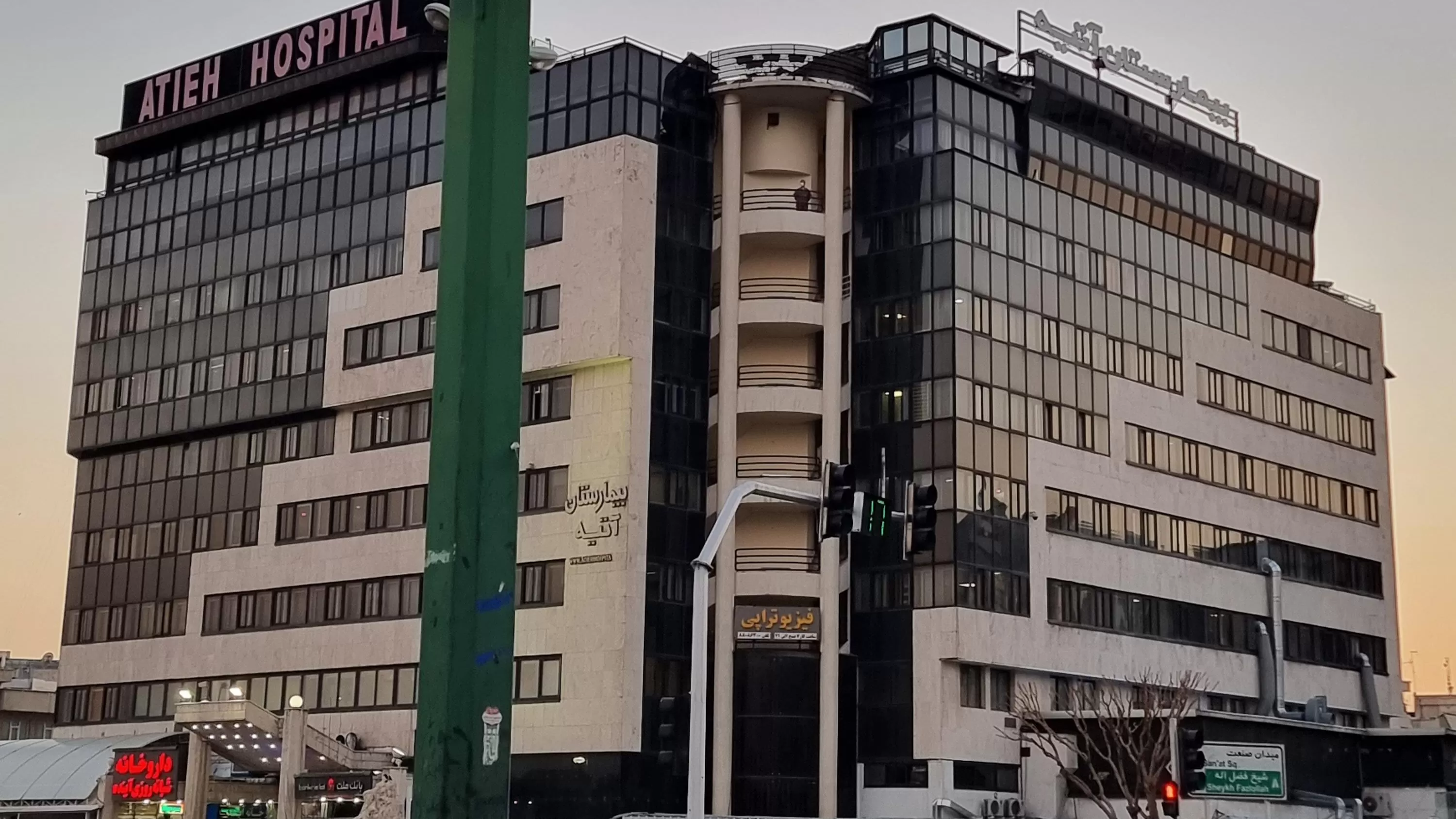
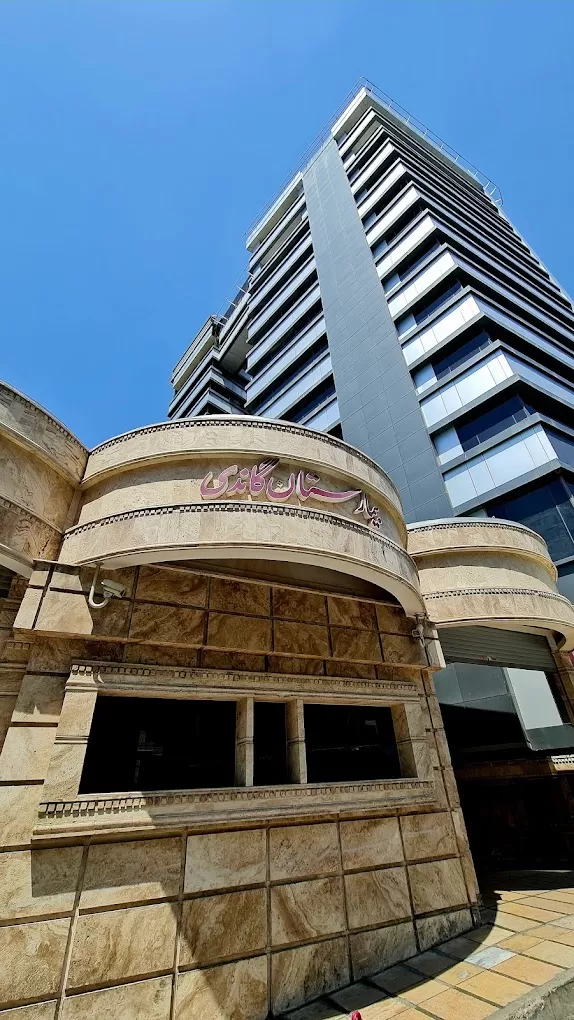
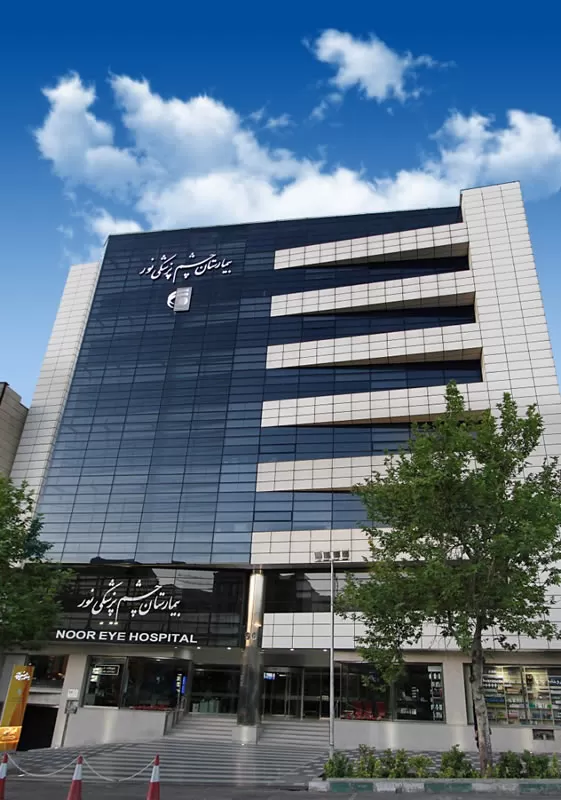
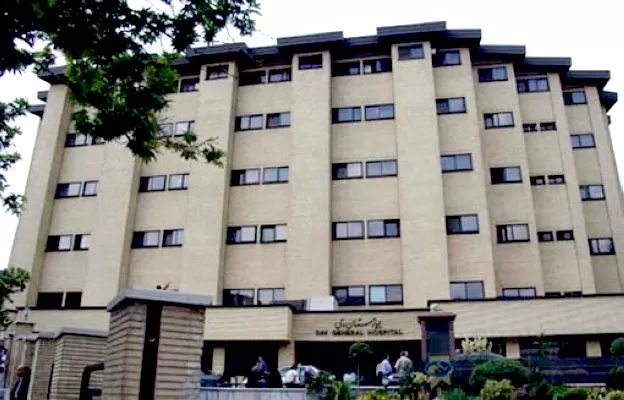
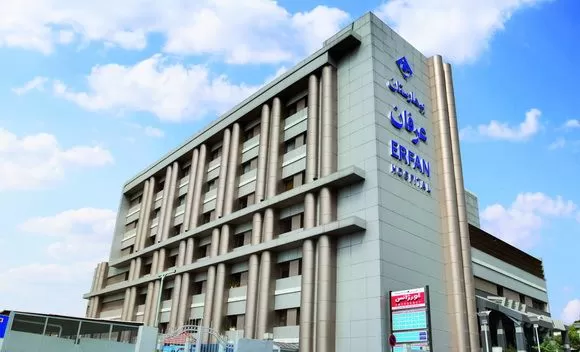
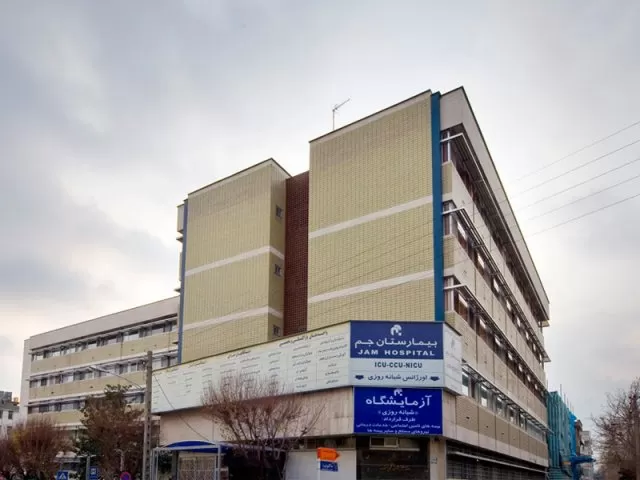
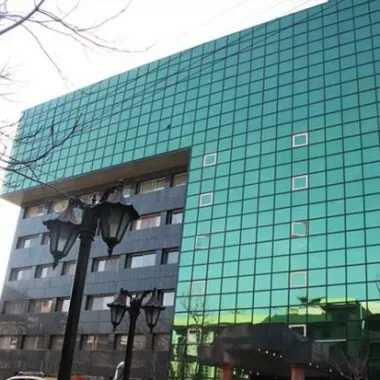
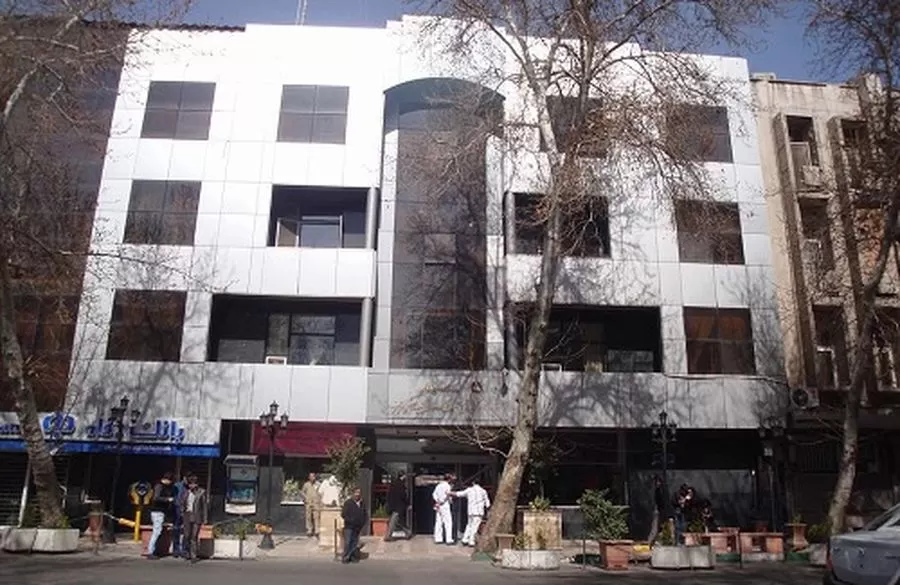
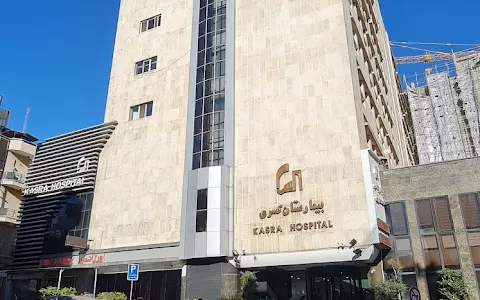
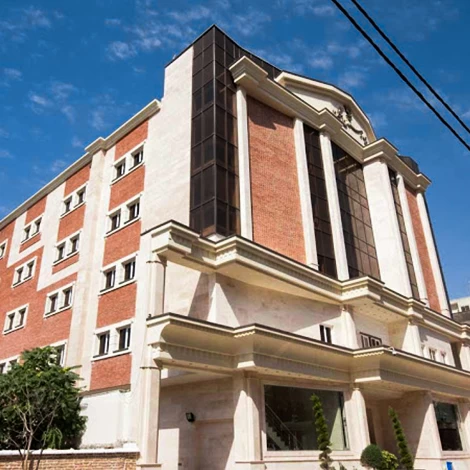
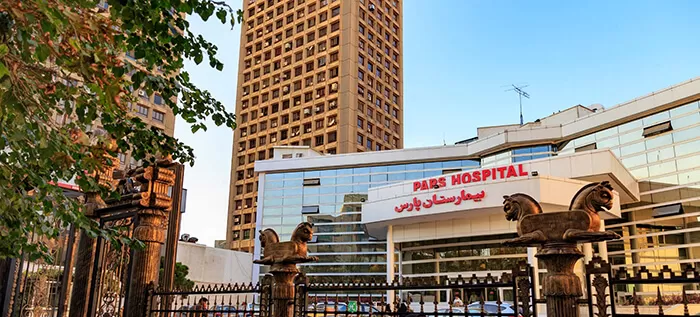
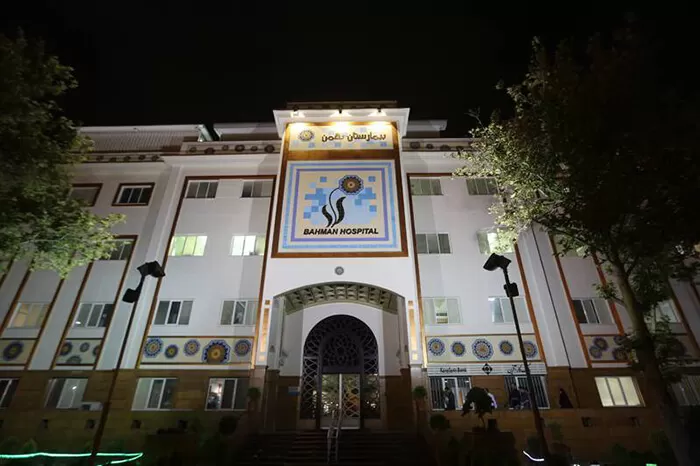
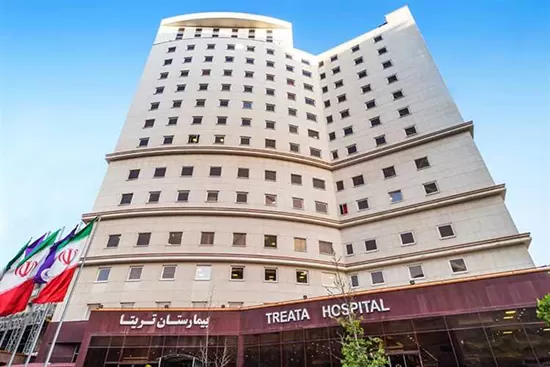
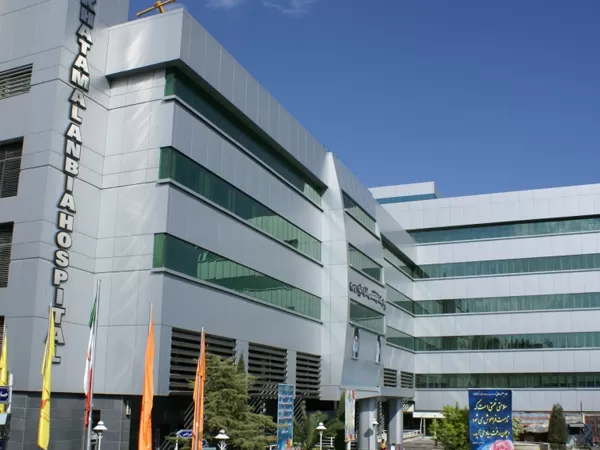
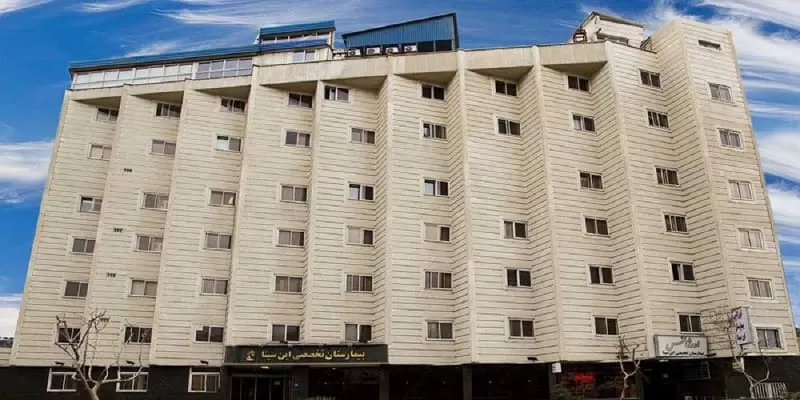
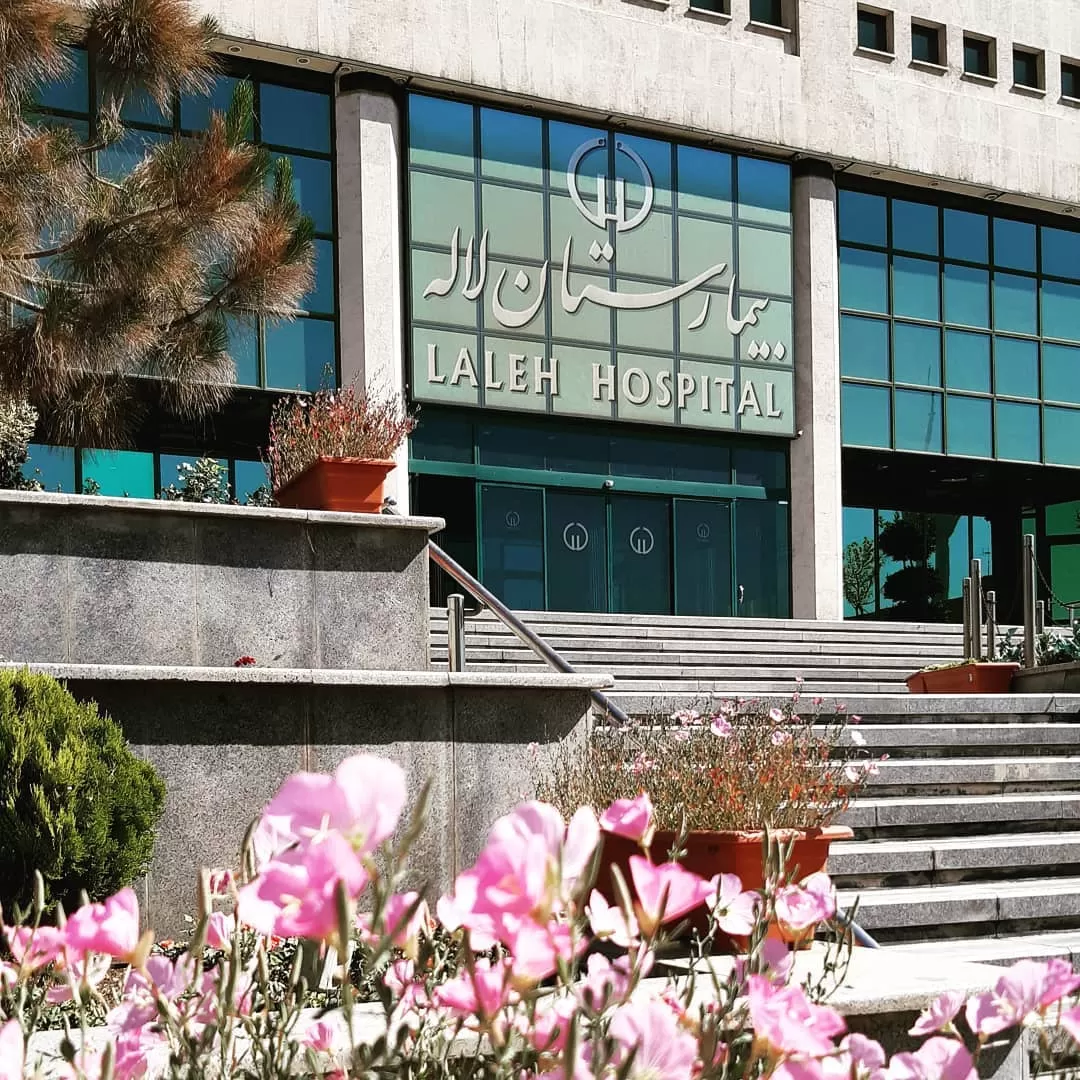
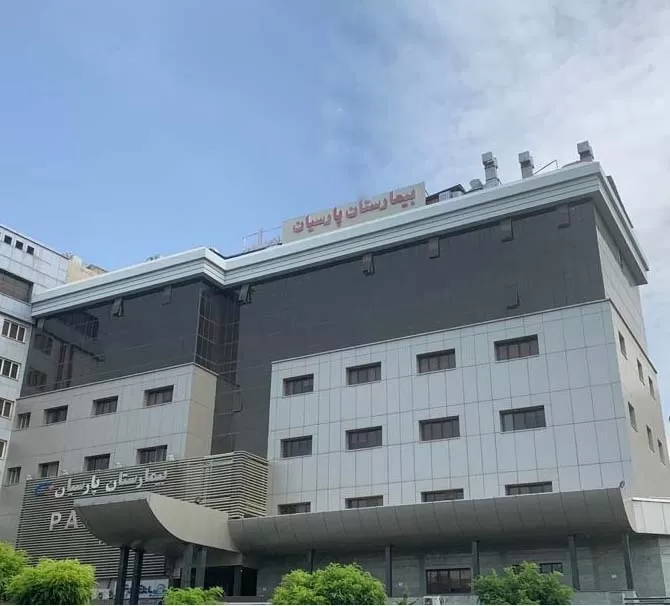
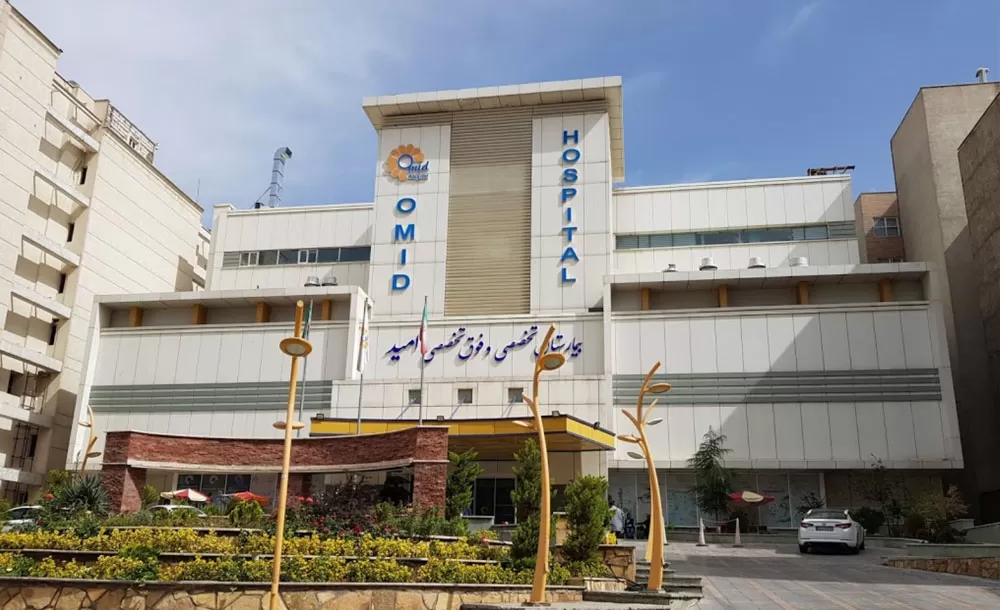
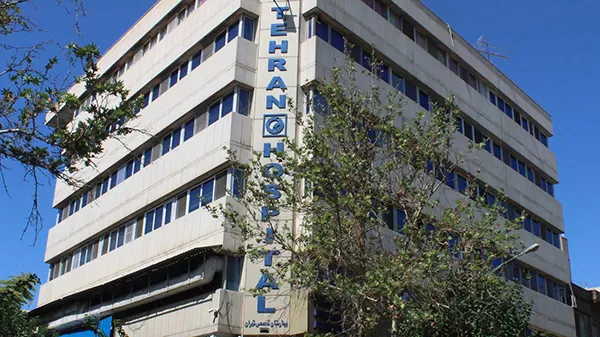
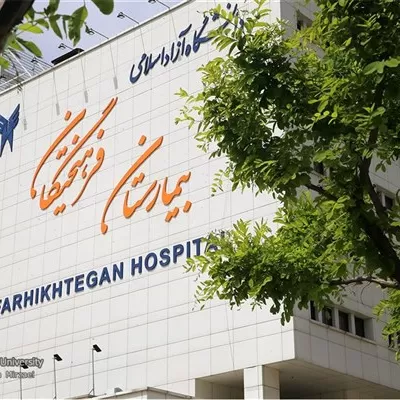
![Frequently asked question about [name]](/v2tem/images/pages/service/faq-image.webp)
